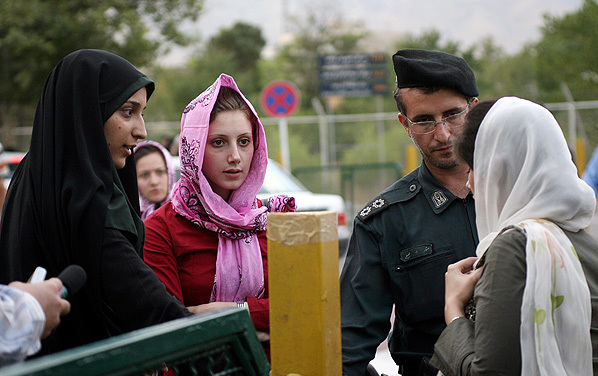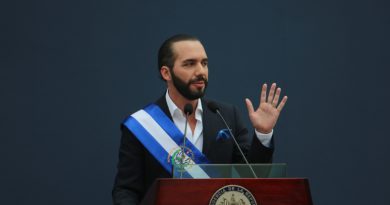Iranian Officials Cause Confusion Over Morality Police
George Slowey
Staff Writer
Confusion broke out Friday as a senior Iranian official declared that Iran’s infamous morality police force had been disbanded, reports The New York Times. On December 3, Iran’s Prosecutor-General Mohammad Javad Montazeri announced that the morality police “…had nothing to do with the judiciary and have been shut down from where they were set up,” reports BBC News. While this announcement comes from the highest-ranking appointed justice official in Iran, there have been no government or state media reports to confirm this, which could imply that this is either a momentary halt to morality police operations or simply part of a restructuring process reports Al Jazeera. The morality police, formally the Guidance Patrol, has long been a subject of intense scrutiny by Western media. One of its primary purposes is to enforce the country’s strict dress code, but its victims are most often women. In most cases, this involves a woman not wearing a hijab, therefore violating Iranian law, and punishments can include fines, imprisonment, or even flogging, according to Amnesty International.
The possible disbanding of Iran’s morality police comes on the heels of three months of protests in the Islamic Republic following the death of 22-year-old Kurdish-Iranian woman, Mahsa Amini in September. Amini was arrested by the morality police and later died in their custody, sparking a huge backlash throughout the country. Thousands have protested the morality police as well as the mandatory hijab laws in Iran in most major cities, especially in the capital of Tehran. According to Iran Human Rights (IHR), 18,000 people have been arrested and over 400 killed. In the same interview where Prosecutor-General Montazeri discussed the possible disbanding of the morality police, he also mentioned that the mandatory hijab laws have also been taken under review, reports USA Today. According to Montazeri, a review of the law and subsequent recommendations would come within the next one to two weeks. Iran’s President Ebrahim Raisi was quoted as saying “There are methods of implementing the constitution that can be flexible,” and a meeting of high-ranking Iranian officials was held over the past weekend to discuss ways to curb the sweeping protests.
Despite favorable developments as a result of the protests, Iranians and western observers are still skeptical of the government, reports Vanity Fair. Many Iranian advocates argue that the supposed abolishment of the morality police is a distraction designed to reduce the effect and motivation behind the protests. Additionally, many Western observers have noted that simple statements do not mean that policy changes will immediately take effect, if they are even implemented at all. The current wave of protests in Iran is more influential than any protests in the country in recent memory. It has caused the Iranian government to at least attempt to appease the protesters instead of simply cracking down on them and imprisoning the protesters quickly and quietly. Time will tell if these protests have any wide-ranging effects on the Islamic Republic of Iran, and how the legal systems of the country will be changed as a result.
Image courtesy of Ebrahim Noroozi




